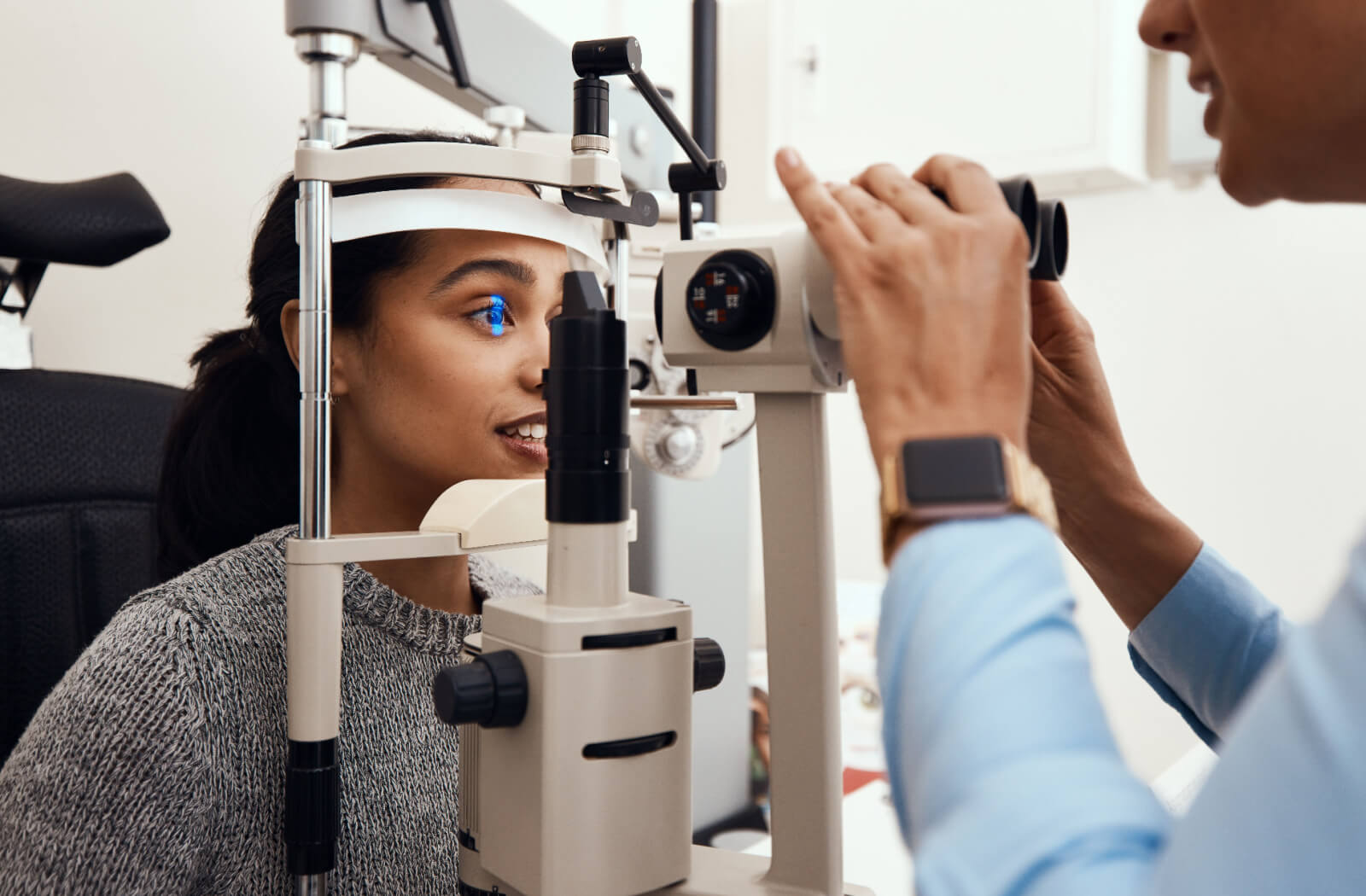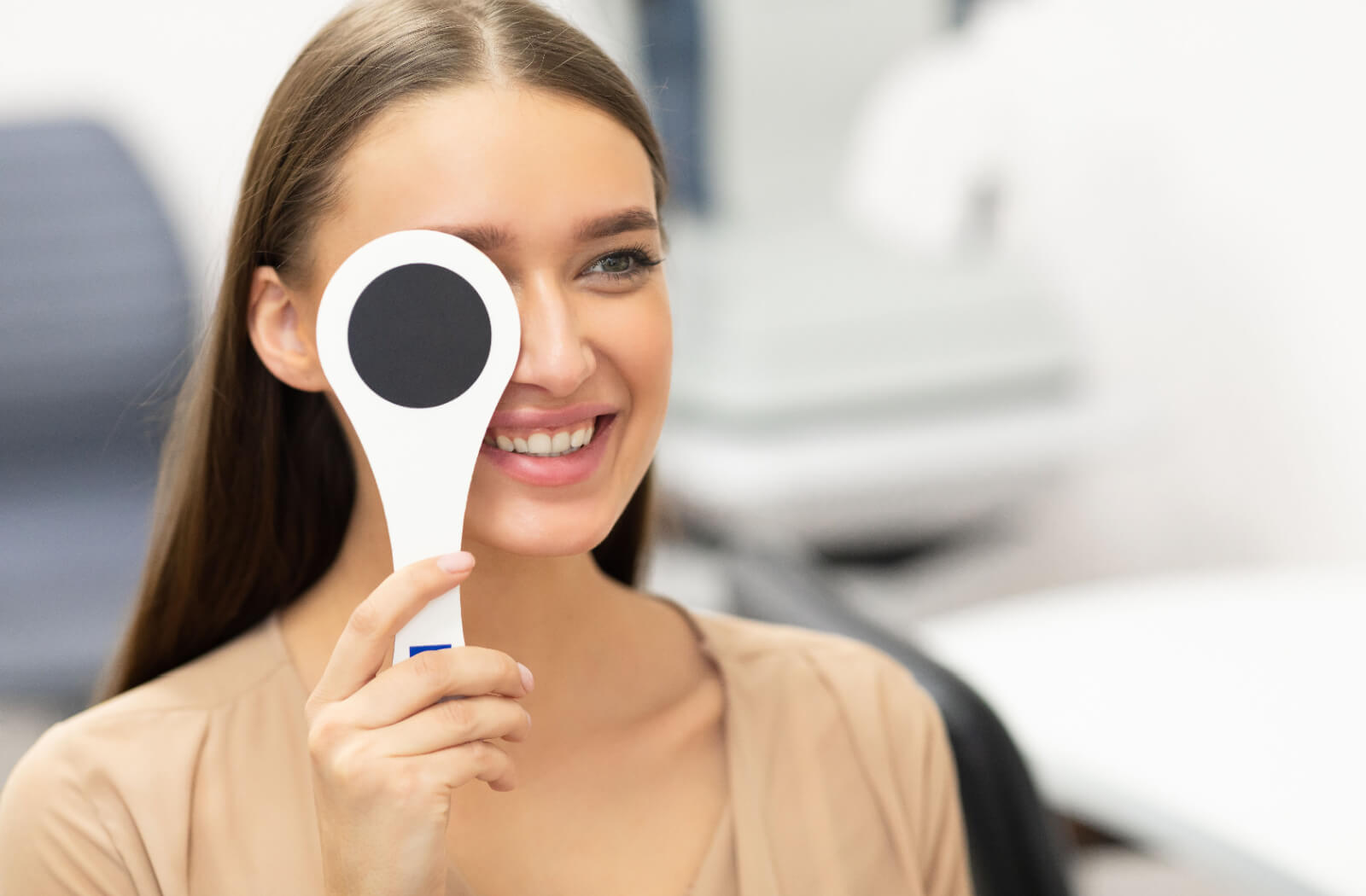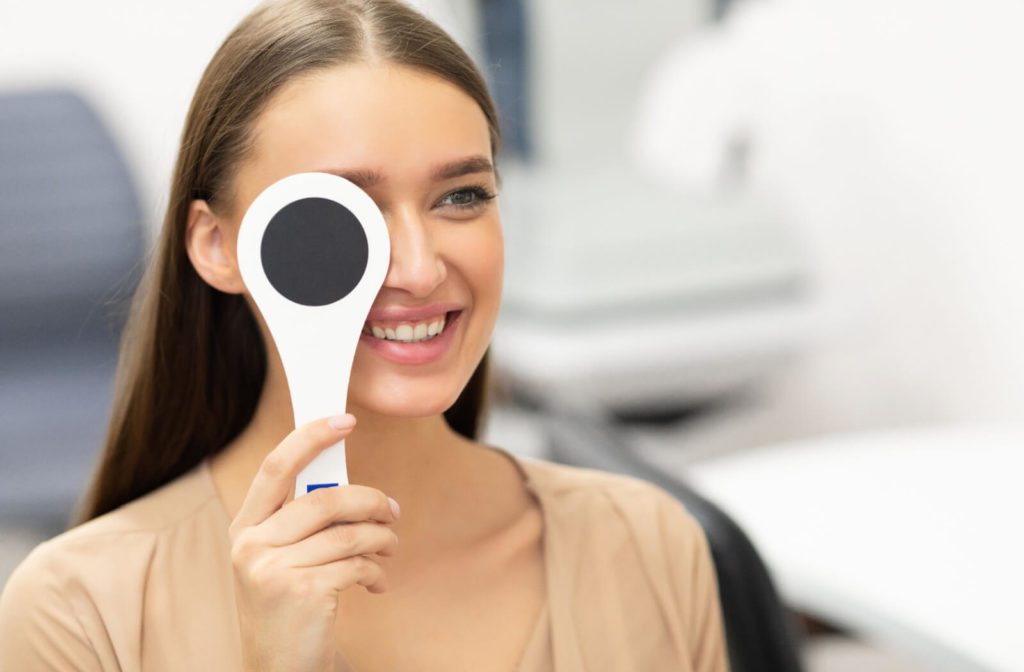Eye exams are an essential part of maintaining good visual health. It involves a series of tests and evaluations to determine the overall health of your eyes and any potential vision problems.
The duration of an eye exam can vary based on appointment type, age, medical history, eye-related symptoms, and prescription updates. Generally, a routine eye exam can take between 20 minutes to an hour.
Factors Affecting the Duration of an Eye Exam
Several factors can affect the length of your eye exam.
Age
Age can impact the duration of an eye exam. Children may need longer appointments because their eyes are still developing. Additionally, individuals aged 65 and over might require extended exams due to potential age-related vision issues that need careful evaluation.
Medical History
Your medical history plays a vital role in the length of your eye exam. Certain health conditions can affect your vision and require additional tests during an eye exam. It is essential to let your eye doctor know about any existing medical conditions to ensure a thorough evaluation of your eyes.
Wearing Corrective Lenses
If you wear glasses or contact lenses, your eye exam may take longer so your eye doctor can check your prescription to see if any changes are required. They may also recommend additional tests to determine the best type of corrective lenses for your vision needs.
Symptoms or Concerns
If you experience any eye-related symptoms or have specific concerns, your eye exam may take longer. Your eye doctor will need to address these issues and conduct additional tests to determine the cause of your symptoms and provide appropriate treatment if needed.
Types of Eye Exams
Different types of eye exams address specific needs, and each exam takes different amounts of time to complete. These exams include:
- Comprehensive eye exam: This exam thoroughly evaluates your overall visual health and includes tests for potential vision problems, including nearsightedness, farsightedness, or astigmatism, and eye health problems, including glaucoma and cataracts.
- Contact lens exam: If you wear contact lenses, your eye doctor will conduct specific tests to assess your eye health and determine the best type of lenses for you.
- Preoperative exam: This exam is necessary if you are considering eye surgery, such as laser eye surgery. Your eye doctor will perform various tests to see if you will benefit from the procedure.
- Pediatric eye exam: Children require a different type of eye exam as their vision and eye health needs are constantly changing. It’s recommended that children have their first eye exam at the age of six months and annually after that.

What to Expect During an Eye Exam
During your eye exam, you can expect to undergo a series of noninvasive tests, including:
- Visual acuity test: This common test involves reading letters from a chart to determine how well you can see at varying distances.
- Refraction test: This test helps determine the correct lens prescription for glasses or contact lenses.
- Slit lamp exam: This exam uses a microscope and bright light to examine the inner structures of your eye, including the cornea, iris, and lens.
- Dilated eye exam: Your doctor may use dilating eye drops to open your pupils to get a better view of the back of your eye, including the retina and optic nerve.
- Colour blindness test: This test evaluates your ability to distinguish between different colours.
- Peripheral vision test: This test assesses your side vision by having you focus on a spot in front of you while objects are moved in from the side of your field of vision.
- Eye muscle movement test: Your doctor may ask you to follow a moving object with your eyes to test the function of your eye muscles.
- Retinal exam: This exam uses high-definition imagery to assess the back of your eye, including the retina, for any signs of damage or disease.
How to Prepare for an Eye Exam
There are a few things you can do to prepare for your eye exam:
- Bring your current glasses or contact lenses to help your eye doctor determine if your prescription needs to be adjusted.
- Bring a list of medications, supplements, and health conditions you have. Some medications and health conditions can affect your vision, so it’s important for your doctor to be aware of them.
- If you wear contact lenses, remove them before your exam. Contact lenses can change the shape of your cornea and affect the accuracy of the exam.
- Think about any changes in your vision or specific concerns about your eyes, and let your eye doctor know.
- Arrive early to your appointment so you have time to fill out any necessary paperwork and relax before the exam. You can also take this time to write down any last-minute questions or concerns before the exam begins.
Regular eye exams are essential for detecting and preventing potential vision problems before they become serious. During the eye exam, your optometrist may address any concerns or questions about your vision, lifestyle needs, and overall eye health.
Make Time for Your Eyes
At Insight Eye Care, we are dedicated to providing comprehensive eye exams and patient-focused vision care for people of all ages. If you are due for an eye exam, schedule an appointment with us today to take the first step to maintaining healthy eyesight.







